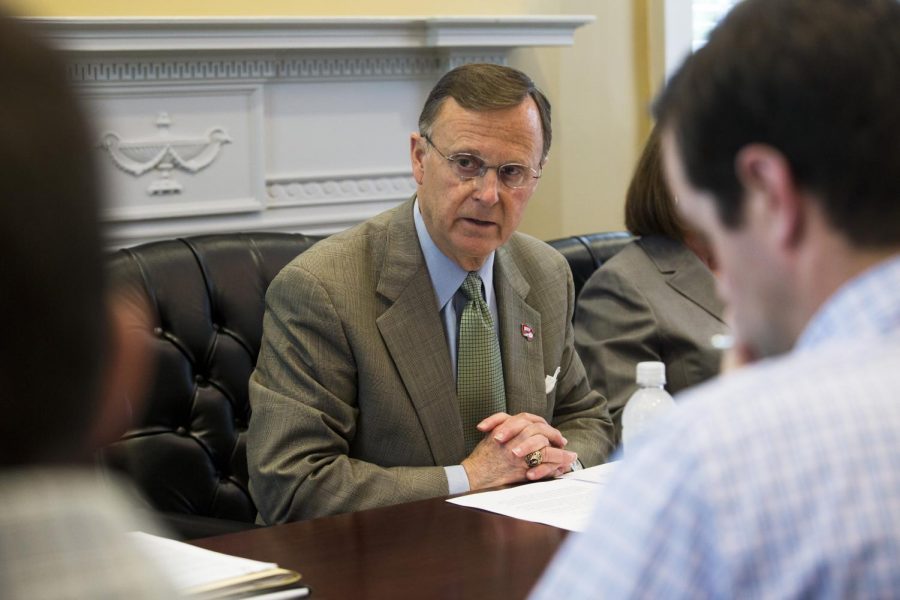Ransdell announces plan for budget reduction in email blast
April 27, 2016
President Gary Ransdell announced the university’s plans for reduction in WKU’s budget given the final actions taken by the Kentucky General Assembly on the 2016-2018 biennial budget.
“We now know the outcome of the variables that impact our campus budget decisions and can move promptly to implement our budget reduction plans,” Ransdell said in the email.
In the email Ransdell said yesterday the Council on Postsecondary Education voted to allow WKU to increase full-time, resident, undergraduate tuition by $216 a semester, or 4.65 percent. WKU’s increase, however, will come at at a 4.5 percent rate, or $215 a semester.
“The tuition increase will be dedicated to campus needs and a salary increase, but the total revenue generated from a tuition increase will not be sufficient to balance our budget with the planned salary increase and our fixed cost increases,” Ransdell said. “This tuition increase will enable us to address faculty and staff compensation and improve student success, and it ensures that we will continue to offer a strong return on student investment.”
Once tuition revenue is accounted for, Ransdell said the university still needs to achieve a total reduction of $6,039,200 in order to achieve a balanced budget.
“Given that we have already reduced our state appropriation by $15 million over the last decade and reallocated or reduced another $15 million in university funds in the last few years, there are no obvious or easy solutions,” he said.
He said this reduction will be achieved through administrative reorganization of units within Academic Affairs and Student Affairs. This would involve the shifting of some items from permanent funding to one-time funding, allocating a surcharge increase for online courses to the central budget and minimal program reductions and eliminations in several divisions.
“We are protecting filled faculty positions and credit-bearing academic programs,” Ransdell said.
Ransdell also addressed how he is still committed to a salary increase for all full-time employees despite the revenue challenges facing the university. He said the plan is to phase in a 3 percent total salary increase over 12 months.
The plan for this is to fund a one percent salary increase effective July 1, 2016 with another one percent increase effective Jan. 1, 2017 and another one percent increase on July 1, 2017.
“It has been some time since our campus employees received a pay increase, and the equity funds are the primary means through which we will achieve the full 3 percent.”
He also addressed a “particularly difficult by necessary decision” to transfer the university’s Building Services and Grounds employees to a private contract with Sodexo.
“All impacted employees will receive an hourly pay increase, health benefits, vacation, and sick leave from Sodexo, and no one will lose his or her job as a result of this action,” he said. “Human Resources will work with each individual to assure a smooth transition.”
Ransdell said a campus forum is planned for tomorrow in the Downing Student Union auditorium at 2:30 p.m. to further address specific items, questions and concerns.
“Budget cutting is a painful and difficult process, and unfortunately, we have been faced with this nearly every year for the last decade. I know the campus is weary, as am I, of budget cutting,” Ransdell said.
The Herald will have more information on this story as it develops.
Ed. note: A previous version of this story listed the tuition increase at 4.65 percent, instead of the correct 4.5 percent.















